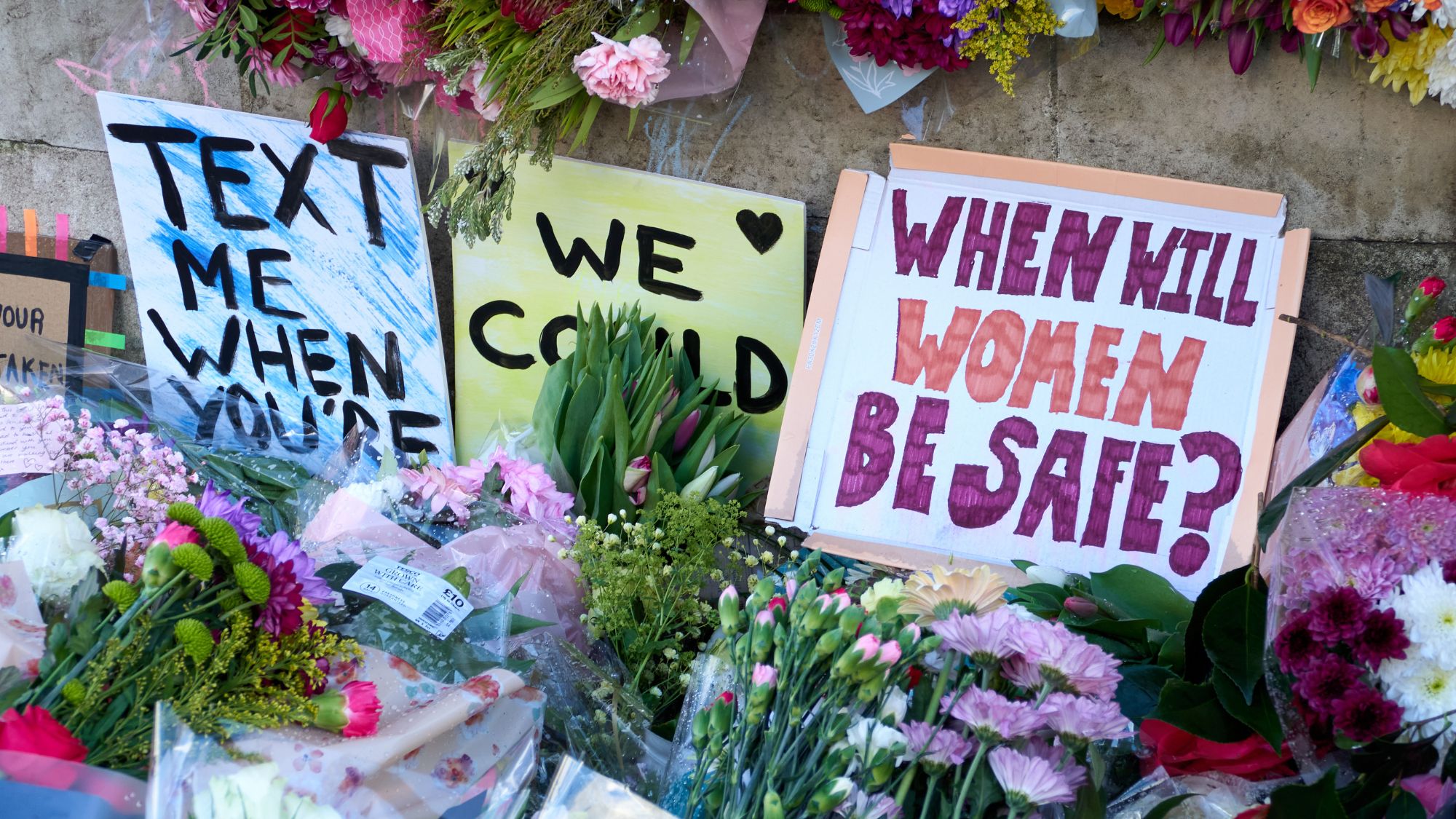Violence against women and girls has been declared a national emergency - what took so long?
Sexist crimes are on the rise and perpetrators are getting younger


The National Police Chiefs’ Council has declared violence against women and girls a national emergency.
A new report published by The National Police Chiefs Council (NPCC) reveals the extent and extremity of violence against women and girls in the UK. The findings have led to the issue being declared a “national emergency”, and while the details make for troubling reading, for many, it doesn’t come as a surprise.
In the last month alone, we have seen the harrowing murders of Carol and her two daughters, Louise and Hannah, a 38% spike in domestic abuse following the Euros, and the news that in England and Wales, one woman a week is killed by a current or ex-partner. Worse still, according to the latest Femicide Census, a woman is killed by a man every three days in the UK.
In the UK, a woman is killed by a man every three days.
Femicide Census
This is not new information. Women’s charities have long been calling the growing violence women and girls face a national emergency. Domestic abuse makes up 18 per cent of all recorded crimes in England and Wales. Despite this, prosecution rates remain worryingly low.
In fact, despite a 37% increase in violent crimes against women and girls in the last five years, prosecution rates have fallen. Conviction rates are also on the decline. In the year ending March 2023, there were 39,198 convictions compared to 40,647 convictions the previous year.
Despite a 37% increase in violent crimes against women and girls in the last five years, prosecution rates have fallen
The Domestic Abuse Act 2021 introduced new measures and legislation designed to protect women better. The Act saw the introduction of what is largely known as the “revenge porn” offence, as well as widening what constitutes domestic abuse. Under this Act, controlling or coercive behaviour is acknowledged as domestic abuse.
Before The Domestic Abuse Act 2021—and therefore the expanded acknowledgement of what constitutes abuse—there were already 2.3 million recorded victims of domestic abuse a year between the ages of 16 and 74 (two-thirds of whom were women). Many in the sector say that since the Act, there has been a huge backlog of cases, excruciatingly long wait times, and limited access to justice.
Celebrity news, beauty, fashion advice, and fascinating features, delivered straight to your inbox!
Add to this a lack of domestic abuse training for police and judges, and this week’s assertion that the UK is in the throes of a sexist violence emergency seems shamefully delayed.
“We fundamentally believe that the lack of progress in areas key to solving violence against women and girls, from funding through to improving conviction rates and protecting survivors, is due to political decisions and not economic ones.” Women’s Aid head of media, Teresa Parker, told me earlier this summer ahead of the organisation’s rally outside parliament.
A post shared by Marie Claire UK (@marieclaireuk)
A photo posted by on
So, why is violence against women and girls only now being recognised for what it is—a national, society-wide emergency?
For one, according to a report by the Domestic Abuse Commissioner for England and Wales, 10% fewer domestic abuse crimes have been recorded in new statistics after police “were instructed to deliberately count fewer crimes”. The same report, released in January of this year, states that there has also been a considerable decrease (42%) in the number of malicious communication offences recorded by the police as they are no longer required to count malicious communications and public order offences in certain circumstances, according to new counting rules.
The new rules, which were introduced in June 2023, state that the Home Office told police to only count one crime each time a victim comes forward. Sharon Bryan, Head of Partnerships and Development at the National Centre for Domestic Violence, tells me that a woman will be assaulted approximately 35 times before getting help.
With this estimation in mind, it’s even more concerning to think that each time a woman bravely reports an assault to the police, it will still be listed under the first offence. In all likelihood, it will have been at least the 35th time she has been abused.
A woman will be assaulted approximately 35 times before getting help.
Domestic abuse made up almost one in six crimes reported to the police in the year ending September 2023, according to ONS, yet those with knowledge of the sector say that domestic abuse training for police is woefully lacking. “Fear is a key factor in why women don’t come forward about domestic abuse. When they do, they fear they won’t be believed or that they won’t be safe,” says Nicola Miller, CEO of Dash Charity.
The new report states that 1 in 12 women are victims of sexist crimes every year, but police estimate less than 24% of incidents are reported. What’s more, offenders are getting younger, say police. Gen Z men and boys see feminism as more of a negative than any other generation. To combat growing misogyny among young men and boys, the College of Policing will be creating a central hub to assist police forces with specialist knowledge and training. The government has also said it will introduce 80 new specialist rape courts and make misogyny a hate crime.
Access to support and justice is crucial in combatting violence against women and girls. We will likely never know the actual, almost incomprehensible scope of violence against women and girls, but acknowledging the danger feels like green shoots. Unfortunately, for too many women who have lost their lives to male violence, it is already too late.

Mischa Anouk Smith is the News and Features Editor of Marie Claire UK.
From personal essays to purpose-driven stories, reported studies, and interviews with celebrities like Rosie Huntington-Whiteley and designers including Dries Van Noten, Mischa has been featured in publications such as Refinery29, Stylist and Dazed. Her work explores what it means to be a woman today and sits at the intersection of culture and style. In the spirit of eclecticism, she has also written about NFTs, mental health and the rise of AI bands.